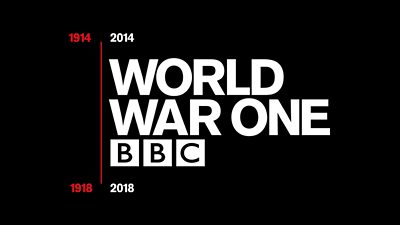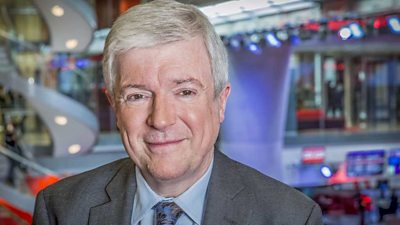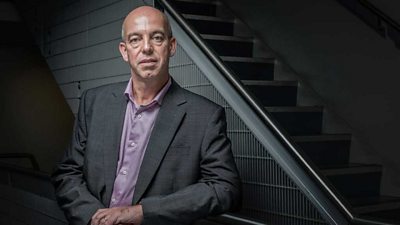World War One
Marking the centenary of World War One on the 91�ȱ�.

Introduction by Director-General Tony Hall

There’s a single idea behind everything you will see and hear today about World War One – and it is this: no other event in our history has had such a dramatic impact on who we are.
The conflict touched the lives of millions across our country and the world over. An entire generation was defined by the war, on the battlefield and on the 91�ȱ� Front. Nobody escaped its impact – soldiers, but also wives, mothers, children. No war before demanded so much of the nations that fought it. Every resource – psychological, moral, industrial and military – was committed to winning it.
We all have a powerful picture in our minds of what form World War One took, and yet, to this day, there are few questions more bitterly debated than the one that asks – what caused it? Even more contentious is the question of how the war ended, or rather how it didn’t. Twenty years later, the world was at war again.
Like so many, I was deeply affected when I first saw the 91�ȱ� landmark series, The Great War, 26 hours of testimony narrated by Sir Michael Redgrave. But, in the 50 years since that series first aired, we have so many new stories that demand to be told – and in ways that couldn’t have been imagined back then. That’s what we’ll be bringing to you over the next four years.
I’d like to thank all our partners who have lent their expertise and resources so generously to help us create something very special for audiences today and, we hope, for many years to come.
Introduction by Adrian Van Klaveren - Controller, World War One Centenary

The 91�ȱ�’s World War One Centenary season is unlike any other season the 91�ȱ� has undertaken, not least because of its scale. With programming and events spanning the four years from 2014-2018, echoing the time-frame of World War One, it is the biggest and most ambitious pan-91�ȱ� project ever commissioned with more than 2,500 hours of programming already planned across television, radio and online and across our international, national and local services.
The causes, course and consequences of World War One defined what happened in Britain and the world over the next 100 years. Sixteen million people died in the first truly global conflict. It set the course for what the UK became over the next century, profoundly changing British society in so many ways. It marked a turning point in the nature of military conflict and it led to a redefinition of Britain and her then Empire’s role in the world.
It redrew the international map in a way which makes it impossible to understand recent history in the Balkans and Middle East without understanding the consequences of the Great War. It was a war fought by people from every part of the world which shaped the world in which we now live.
But we also know that the war still has many personal connections for us all as individuals. Even though there are no survivors who fought in the war itself, so many families and communities were touched by the conflict and have a story to tell. My own grandfather fought in the Battle of the Somme, where he was seriously injured.
We are setting out to broaden people’s understanding of the war, to commemorate and remember those who were caught up in it and to tell both well-known stories from fresh perspectives and original stories so far untold.
To do that, we will be looking at the war from many different viewpoints. Naturally the events that took place on the Western Front will play a vital part but we will also be looking at the effects of the war at home in the UK and on countries and people across the world. There will be documentaries, dramas, programmes for children, music, live events, debate, discussion and a significant digital offering at bbc.co.uk/ww1.
There will, I believe, be many highlights but among the things I’m personally looking forward to is Britain’s Great War, a landmark documentary series for 91�ȱ� One early next year in which Jeremy Paxman uncovers the story of World War One and its impact on Britain. 91�ȱ� Radio 4 will be airing two hugely ambitious dramas: 91�ȱ�front – running for half the year, five days a week, for four years in 15-minute instalments, telling stories of what life was like during the war; and Tommies – a series of plays across the four years telling the story of the war itself.
There will be two major TV dramas on 91�ȱ� One. The Crimson Field will take viewers into the lives of the medics and their patients at a fictional field hospital behind the trenches; while The Passing Bells, by Tony Jordan, tells the story of WWI through the eyes of two very ordinary young men. On 91�ȱ� Two, 37 Days explores the politics behind the build-up to war. This dramatised account will be echoed on Radio 4 with Margaret MacMillan’s definitive 42-part day-by-day series about the events that triggered Britain’s entry into the war.
Yet this is not all about facts. There will be programming about poetry, paintings and music including a reimagining of the ballads of the time by contemporary folk musicians for 91�ȱ� Radio 2. The Cultural Front on Radio 4 will look at how the war changed the worlds of literature, music, drama and the visual arts.
Internationally 91�ȱ� World Service and 91�ȱ� World News will reflect the very different ways in which the war is remembered and commemorated around the world and will be both staging special debates and delving into individual stories.
In trying to reach many different audiences, we are commissioning programming that will connect young people with the war beyond what they perhaps studied at school. 91�ȱ� Three is undertaking a series called Our World War, done in the style of the Our War series in Afghanistan but clearly in a very different way for events 100 years ago. And the 91�ȱ� Children’s teams are creating drama, documentaries and even a special Horrible Histories to encourage our youngest viewers to understand the war and the role children played. 91�ȱ� Learning is playing an important role in ensuring the programmes we are making become a resource to inspire and encourage learning in the years ahead.
We are unearthing unique family and community stories as part of our World War One At 91�ȱ� project across the UK, with the radio, television and online content supported by outside broadcasts and live events. I hope that during the course of our four-year season, we will help others discover their own personal connections with The Great War and tell those stories across the 91�ȱ�’s local and national outlets.
And of course, we will be part of the national moments of memorial, focused particularly around the events on 4 August in Glasgow, Belgium and London. Those events will be central to the nation’s remembrance of the events of the war and its huge death toll. The 91�ȱ� News and Events teams will be at the heart of the occasion ensuring that everyone at home can feel connected and part of such a significant commemoration of our collective history.
However, it is also important that we question and challenge ‘perceived wisdom’ and contested narratives about the war. We’ve asked eminent historians, including Sir Max Hastings, Christopher Clark and Niall Ferguson, to tackle some of the biggest debates about World War One from their own expert standpoints so that viewers and listeners have more information and perspectives on the key questions. I think it is incumbent upon us to offer differing interpretations of the war and we won’t shy away from doing that.
We are collaborating with many national and local organisations to help tell the stories of the war. Our link with the First World War Centenary Partnership, led by the Imperial War Museum, is particularly significant. The IWM is an unrivalled resource for knowledge of the Great War and we are drawing on its expertise and materials to enrich our programmes. We are also working with other partners including the Open University, the Arts and Humanities Research Council, the Commonwealth War Graves Commission, the Heritage Lottery Fund and many others.
As the nation’s broadcaster, the 91�ȱ� is uniquely placed to reach people of all ages and from all parts of the country, helping to broaden understanding about what the conflict actually meant both on a global scale and the many individual stories within it. The next four years will inevitably frame how World War One is understood and remembered for generations to come; we appreciate the burden of responsibility we carry in helping to shape this.
I hope that viewers and listeners across the country will join us as we set out to the Western Front and beyond to uncover the real stories behind World War One and help people find their own connections with the defining conflict of the 20th century.